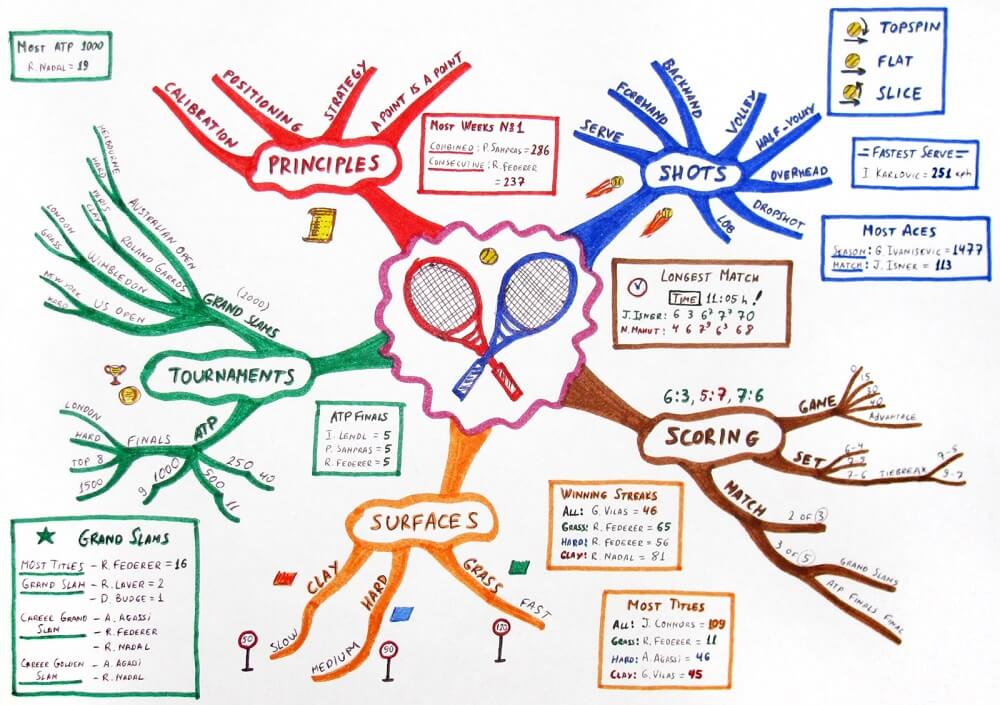4 Secrets To Never Lose Motivation to Study
Are you losing motivation to study for your exams?
Or you have completely lost the interest to find your motivation to study?
You might be thinking:
- What if I can still score well for my exams, even if I am not motivated to study now?
- I need to start studying now! But let me check my Facebook, Instagram, and 9GAG first. *Repeating every 5 minutes.
Here’s a fact:
Everyone wants to do well in their exams.
But not everyone knows how to excel in their papers.

As it turns out, anyone is actually capable of doing well for exams. In fact, the biggest problem actually lies in finding the motivation, or “reason”, to study.
In this post, you’ll learn the secrets of not losing motivation to study and achieve your academic goals:
- Why people lose motivation
- How to gain motivation more than you used to have
- Ways to maintain your motivation level at all times
- How to use motivation to score well for your exams?
Secret 1: Why you can’t find the motivation to study?
Have you ever asked yourself:
“Am I a lazy person?”
Chances are, you answered, “not sure”.
How about the days when you don’t feel like going to an outing you promised to go?
Or, when your mum asked you to do the chores, and you don’t feel like moving at all?
Now picture this again: What if you were given a free delicious dinner if you were to go for the outing?
Or what if your mum gives you $500 if you were to complete the chores?
Now you are feeling energetic and ready to complete those tasks, aren’t you?
Similarly, would you have started studying if there were to be an attractive reward for doing it?
First, let’s understand what laziness is.
It is avoiding doing an activity despite having the capability to complete the task. One of the reasons is the lack of interest in the activity.
So, it is not “something you are born with” and you can do nothing about it.
The key is to find a task that can spark your interest through your strong desire in acquiring something (i.e money, fame, valuable object).
Ok. So I am not lazy, I just need to find the “desire” in doing something that I should be doing, right?
Not so fast.
Turns out, it’s not as easy as we think.
a) The Science Behind Motivation
Don’t worry, I will make this as simple to understand as possible.
Motivation is the feeling of desire to want something or to avoid something. It the goal you are striving towards and also an internal aspect as the “wants” originated from yourself.
Simply put, you need to ask yourself these questions:
- “Why do I even need to study?”
- “What am I hoping to achieve if I study well for my exam?”
- “How can studying help me to achieve what I desire?”
There are currently many theories surrounding the topic of “Motivation”.
Yet, there is only one theory that I will be covering today and I believe it is enough to help you find your drive.
b) Intrinsic & Extrinsic Motivation
Intrinsic motivation is to do a task for the motive of enjoyment and satisfaction rather than any external value.
Try to recall if this has happened to you:
Have you ever forced yourself to study because your parents may punish you if you didn’t?
Your parents likely thought that you are motivated to study, so they will leave you alone.
But have you realized that you stopped studying when your parents are no longer watching you? Perhaps you even took a sneaky break and check out your Social Media updates.
What you experienced was the effects of Extrinsic motivation.
When your parents are momentarily gone, your external “Motivation” is gone, and you no longer feel the need to study so hard.
On the other hand, a child who wants to achieve his ambition will be motivated to study as he or she understands this is part of the process of achieving success.
This is why to find your motivation, you first need to identify your intrinsic reason.
Secret 2: How to Find Your Intrinsic Motivation?
There are many methods to find intrinsic motivation.
Let’s take a look at some of them:
a) Time Machine Watch
This method can be applied not just on studying, but your long-term goals too.
Before reading on, I want you to put down everything, and close your eyes.
Imagine you are now at the moment in your life, where you have finally achieved your goal. Everyone around is cheering for you, you are happy and proud of yourself.
Now here’s a fun twist.
Now, imagine you have a time machine watch that you can rewind time whenever you like.
At this successful point, visualize yourself going back in time to the point where you just graduated from school with flying colors.
At that moment, you knew that you needed to do well in school so that you have a better chance of achieving your goal. It could be finding a well-paying job that you truly enjoy yourself having.
Do you feel the urge and drive to start studying already?
Here’s what happens:
Do you know when you are thinking about your favorite meal or unboxing your new present, your brain creates dopamine (known as the feel-good neurotransmitter)?
This chemical works when you visualize your success too, and it will also help you move towards it.
When you are imagining yourself in a successful position, your brain is registering it as a happy emotion and starts to release dopamine. The more you think about it, the long-lasting the effect is.
So, whenever you are losing interest to study, close your eyes and use your time machine watch!
b) Fear of Failure
Studies have shown that people are usually more sensitive to losses than they are to gains when making decisions.
Enter Loss Aversion.
Assuming that you are in a gamble, with a 50% chance of winning and losing $1000 if you place a bet, which choice would you pick?
Guess what, the majority would choose to avoid entering this gamble.
Why?
In this gamble, though the chance is equal in winning or losing, the psychological impact for losses are much powerful as compared to gains.
Now, think about this:
What happens if you were to stop studying and go for the exams?
You definitely know you will fail your exam. But there is much more emotional impact you will face, such as lack of self-confidence, disappointments from your family and yourself.
Now, why would you want to risk and face this awful feeling?
The next time you feel unmotivated to study, think about the loss that you may risk facing. Act on it to improve your chance of success.
c) Negative Peers
In your pursuit of success, you will come across people who try to make you feel undeserving and unworthy.
These negative peers can be your friends, your teachers, or even your family.
Sometimes they may not even know the harm they are causing you. This can be even more dangerous as they will keep doing it.
To rebuild your confidence and self-belief, it is usually best to cut them off.
If not, start talking to them about this issue and make it clear that you cannot accept negative remarks.
Also, don’t be shy to foster a healthier relationship with new friends. They will provide encouragement and help you develop the self-discipline to build motivation.
Secret 3: How to Maintain Your Motivation level?
a) The Goldilocks Rule
Have you found yourself giving up on things that you haven’t completed it before?
Truth is, scientists have been trying to break this code for decades.
But, there is one study seemly able to answer this question.
James Clear found that the difficulty of tasks has a great impact on maintaining enthusiasm.
To play tennis with a child, you will find it easy and quickly be bored. If you play against World’s Best tennis player, you will almost instantly give up.
But, if you are playing tennis with someone of the same skill, you will find that you win and lose sometimes.
You are can emerge victorious, only if you try really hard. You start to concentrate so deep that no distractions can pull you away.
Eventually, you are fully engrossed in becoming better and winning the game.
Before you start giving up on your study, check with yourself:
- What are your strengths and weaknesses?
- Which subjects do you fail or underperform the most?
- Why are the subjects difficult to understand?
- Can I break down the difficult part “smaller and digestible”?
As you begin to see yourself “winning” the obstacles, you will believe in yourself and sustain your drive.
b) The Five Whys
This term is coined by a Japanese inventor named “Sakichi Toyoda”, who is also the founder of the Automobile company, Toyota.
This approach is fairly simple when facing a problem: Keep asking yourself “why” five times and you will eventually get to the root cause.
Of course, you can go on to sixth times and more, but usually, five is enough to understand the problem’s origin.
Let me give you an example.
I have no interest to study for my exams:
- Why? I have no energy to start.
- Why? I am not in the mood to start
- Why? I have no confidence in passing the exam.
- Why? I don’t understand the subject well.
- Why? I am afraid to ask questions in class
In this example, I know I am an introverted person, so I should schedule a private session with the teacher to clarify all my questions. I should then understand the subject better and naturally develop an interest in it.
Pretty cool right?
By drilling down the problem, you will finally understand the root cause and find back your drive to study.
c) Partner in Crime
One of the most effective methods of maintaining your energy is to surround yourself with positive people who can keep you in check.
Preferably your partner should have the same goal as you and want to achieve success.
It could be your schoolmates, childhood friends, or even your cousins.
For this to work, you will need to be crystal clear on your goals. Make sure your partner is clear too.
This makes you accountable for your words and will remind you to stay motivated.
Secret 4: How to Use Motivation to Score Well for Your Exams?
By now, your “new found” power should have helped to get back your motive.
Before you do anything, I’ll show you 5 effective methods (that I have used before) to score well for your exams.
a) Fight Procrastination
Did you know humans have been dealing with procrastination way before the Internet?
Leonardo da Vinci finished not more than 20 paintings while spending almost 16 years on the famous artwork, Mona Lisa. During those years, he didn’t focus entirely on completing the painting.
Instead, he usually “doodled” in his notebook with inventions and other stuff.
Many studies have been done on the cause of Procrastination, and it has been found that stress is closely related. This usually relates to family, health and school problems.
To fight procrastination, take a step back and readjust your mindset. I have personally found that meditation helps greatly in removing your negative thoughts.
Before studying, close your eyes, and focus on your breathing for 5 to 10 minutes. Your brain may start to talk to you. Just Concentrate.
Once you are ready, your mind will be more focused, lowering your chance to procrastinate. Try it!
b) Pomodoro Technique
According to research, humans’ attention span has greatly decreased in just 15 years.
It was 12 seconds to a whopping 8.25 seconds now!
Fortunately, the Pomodoro technique can help you maintain focus and study efficiently.
For this to work, set a 25 minutes timer on your phone and fully concentrate on your study.
Once the time is up, take a 5 minutes break (walk around the house, drink some water, etc). Then resume study for another 25 minutes with the timer set.
That’s considered 1 Pomodoro (Italian word for tomato-shaped timer).
Every 4 Pomodoros take a longer break like 20 – 30 minutes. Rinse and repeat.
During the 25 minutes, your brain will focus at its full capacity as it knows that you will have a break coming soon.
With this method, your brain will be conditioned to focus much better.
c) Mindmap
Why is Mindmap so useful in helping students to excel in their exams?
Most of us study by taking notes and listing them in bullet and numbered points.
Listing method is useful, but studies have shown the human brain absorbs visual information better.
In fact, our brain can process images about 60,000 times quicker than text!
If so, why aren’t we using visual guides to help us understand our notes faster and better?
Go grab your colored pens, markers and an A4-sized paper!
Generally, you want to write your main topic of study (eg. human body biology) at the center of your paper.
In landscape orientation, use different colored markers and start “branching” out important parts of this topic and subtopics (eg. digestive system, nervous system, etc).
Now this is the time to doodle!
Draw simple diagrams or sketches beside the branches to further help in your understanding of your notes, like this:
You can create mind maps for your other topics or even subjects, try it!
d) Join a Tutoring Class
Have you faced this scenario, when you just couldn’t understand your study notes even if you tried reading it a thousand times?
If you have, joining a tutoring class may help.
In a study done by Eastern Kentucky University, students who participated fully in tutoring service had higher grade-point-average (GPA) than those who did not take part.
You can start by Google searching “tutor near me” or “math tutor” to display a list of tutoring classes. Be sure to inquire about the fees and feedback from other students.
An example would be this tutor service in Singapore.
Having a tutoring group helps greatly as you will be guided by a highly-certified teacher.

The group is smaller, which means more time and opportunity for you to consult the teacher.
Since tutoring class has a schedule to attend, you will not risk losing interest as your study session will become a routine.
e) Change your Environment
Have you been told to find your usual studying place (your bedroom for instances) so as to improve your study session?
Forget the old rules.
In one experiment, psychologists discovered students who studied a list of words in two different rooms – one windowless, and the other modern with outside view – did much better on a test than students who studied the words in the same room.
This experiment’s results were the same for a variety of topics.
What happens is that your brain receives not just information from your notes, but also the background sensation including the smell, noise, colors, brightness, and more.
And this helps to slow down forgetting.
To start, pick two places that have a proper facility to study (eg. places with tables, chairs, and proper lighting).
Start your studying session with each day at a different place you picked.
You can even switch up your environment by sticking motivational quotes and posters on the walls at these places.
By spicing up your study places, your brain will be better stimulated which can help in improving your absorption of information.
Final Thoughts
Do these methods work? Surely.
But consider this:
The source for motivation actually comes from your desire to succeed. The more you want to score well for your exam, the more you believe you can achieve it. With this mindset, it’s natural that your desire level will be “never-dying”.
Takeaway: If you are looking for interest to study, think about the intrinsic reasons to study first, and use these methods I have covered.
What are your thoughts? Let me know in the comments on Facebook.


















